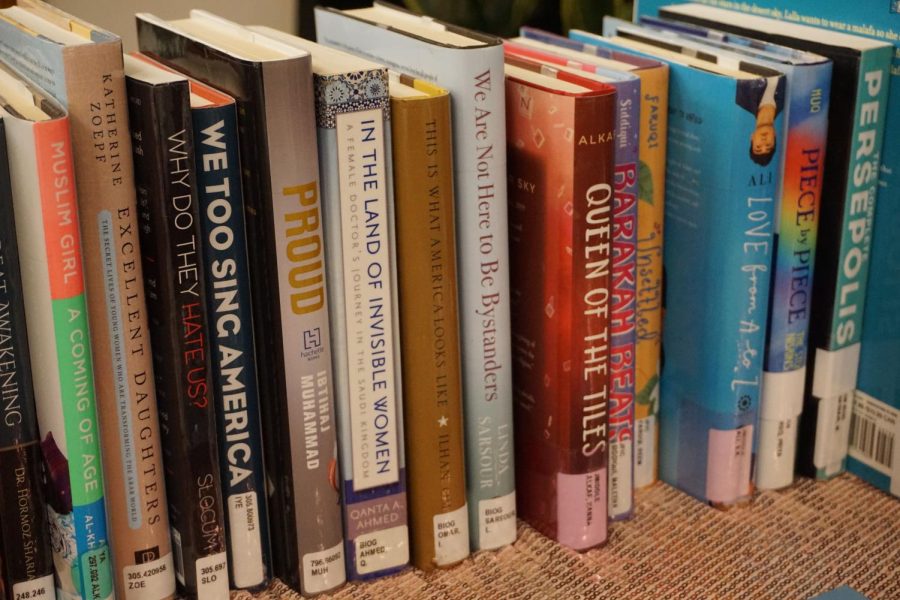Consider purchasing just about any novel in the modern day and you will find it available in a variety of formats: a physical copy, a narrated audio, or a digital copy you can read from a mobile device.
Do one of these options exceed the others? Are there cognitive benefits to reading from a physical book versus listening to that same book being read to you? Does the convenience of e-books come at a sensory cost? Are audiobooks more engaging or convenient?
Reading from a paperback or hardcover book provides a multifaceted sensory experience through looking at words visually, feeling the soft pages with your own hands, and even smelling the distinctive scent of the novel being read. According to Oxford Learning, this stimulation of multiple senses aids in memory retention and comprehension. The sensory benefits of tactile books render them great gifts that can be presented pleasantly and preserved for generations.
Physical books also eliminate the presence of blue light emitted by phones and tablets, which has been shown to disrupt sleep and cause a multitude of chronic health issues such as cancer and heart disease in the long run. This means if you wish to incorporate reading as part of your bedtime routine, the best option would be reading from a physical book in order to truly relax and have restful sleep afterward.
As someone who enjoys reading before bedtime, physical books are certainly a favored medium of mine. I absorb information from a book best in a relaxed, non-distracting environment that allows me to be fully immersed in a story, particularly a bedroom with slightly dim light ( that is still bright enough to read under, of course). Even if there are cheaper digital copies of those books, I am absolutely willing to pay higher prices to obtain physical copies of those same books due to the elimination of blue light as well as the multisensory experience. For instance, the book “Cinder” by Marissa Myer costs ten dollars as an e-book and thirteen dollars as a paperback– in this case, it is a difference of four dollars, though you may take into account shipping costs for ordering the paperback version.
E-books, or electronic books, eliminate the issue of portability that heavier physical books may pose, as multiple e-books can be stored on a single, portable device such as a phone or tablet. Many devices provide reading-enhancing features such as digital highlighting, note-taking, font adjustment and definitions of words that clarify one’s understanding of a book.
Despite their impressive features, e-books are prone to glitches in presenting text and visuals, which can disrupt the reading experience. They also pose the risk of blue light exposure, though there are e-readers available that either allow users to adjust blue light emission or do not emit blue light at all. There is also the potential of distractibility, as many e-reading apps present advertisements alongside text being read, and even typical notifications from the device being used to read can sidetrack readers.
As a college student who must refer to e-books sometimes, I can testify that while e-book features such as annotating can aid in learning and studying, constantly having to zoom into text and visuals using your hands or a cursor or having the e-book randomly take you to an unwanted page can be exasperating. Even while reading e-books for pleasure, I found that constantly having to zoom into words and content disrupted the reading experience and did not make it as immersive as reading from a tactile book. I certainly recall the content of the tactile books I have read for fun way better than the content of e-books I have read– ask me about a book I have read a digital copy of, and I am likely to blank out.
Books do not always have to be read— they can also be listened to. Audiobooks provide an immersive auditory experience through dramatic narration and acting as well as sound effects. They allow listeners to multitask, meaning they can drive, workout or do house chores while listening to audiobooks, which can be of great convenience for individuals with packed, busy schedules who still wish to feel the immersion of a compelling novel. In terms of cost, they tend to be the cheapest medium compared to tactile books or e-books.
Speaking from personal experience, while I do admire the acting skill that goes into many audiobook narrations, I vividly recall spacing out frequently while listening to audiobook CDs I rented from my local library. This would even happen with audiobooks I was genuinely invested in. Audiobooks are a great option for when I am on my way to take an exam or quiz and would like to briefly review material and key details while on the go; I feel that they alleviate my test anxieties to a certain degree and help me consolidate information. However, I only listen to audiobooks for academic purposes when it comes to information I am already familiar with, meaning I do not expect myself to cram or learn brand-new information by listening to a narrated textbook chapter right before a test.
So what is the best reading medium? Audiobooks are cheap but easy to space out from while listening. E-books are portable and customizable but may be finicky and difficult to use through a digital interface. As a reader, I believe stories or text are best digested in a serene, calm environment, via a tactile book that stimulates multiple senses including sight and touch–and the benefits of this medium are proven by experts.







